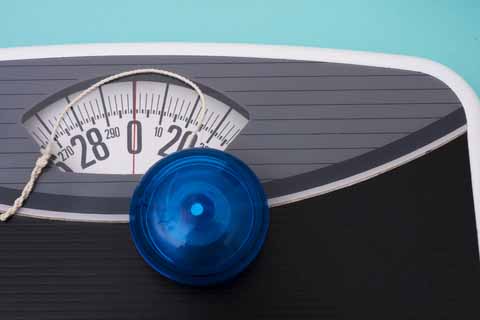

You've seen Oprah do it ... Kirstie Alley do it .. among many other celebrities and people you know or read about in the news. You may be part of the cycle yourself - weight losses and gains that go up and down. It's about the emotional and physical stresses that control our lives and how we cope with them through eating habits.
Most people have gained and lost weight in their lifetime for any number of reasons, called weight cycling or yoyo dieting. For some it's ten pounds, up and down, while for others it's 50 or more. Health and diet are on the top of the list for most people - from organic foods to drinking lots of water to changing eating patterns.
We have to eat to survive and as with everything else that impacts us daily, eating habits and exercise, take the forefront today. Careers in nutrition are becoming more popular. Everyone is becoming not only a life coach or counselor about humanity's emotional problems, but also about how we can eat and stay fit. When you look good, you feel good and it reflects back to others.
A person who repeatedly loses and gains weight should not have more trouble trying to reach and maintain a healthy weight than a person attempting to lose weight for the first time. Most studies show that weight cycling does not affect one's metabolic rate-the rate at which the body burns fuel (food) for energy. Based on these findings, weight cycling should not affect the success of future weight-loss efforts. Metabolism does, however, slow down as a person ages. In addition, older people are often less physically active than when they were younger. Regardless of your age, making regular physical activity as well as healthy eating habits a part of your life will aid weight loss and improve health overall.
Weight cycling has not been proven to increase the amount of fat tissue in people who lose and regain weight. Researchers have found that after a weight cycle, those who return to their original weights have the same amount of fat and lean tissue (muscle) as they did prior to weight cycling. People who exercise during a weight cycle may actually gain muscle.
Some people are concerned that weight cycling can put more fat around their abdominal (stomach) area. People who tend to carry excess fat in the stomach area (apple-shaped), instead of in the hips, thighs, and buttocks (pear-shaped), are more likely to develop type 2 diabetes, heart disease, and high blood pressure. Studies have not found, however, that after a weight cycle, people have more fat around their stomachs than they did before weight cycling.
It is a mental and emotional blow to go through all that dieting, just to be back where you started. Rather than suddenly dieting - hoping for a quick weight loss, it is better to take a more long term sustainable approach.
Yo-yo dieting or Yo-yo effect, also known as weight cycling The term "yo-yo dieting" was coined by Kelly D. Brownell, Ph.D., at Yale University, in reference to the cyclical up-down motion of a yo-yo. In this process, the dieter is initially successful in the pursuit of weight loss but is unsuccessful in maintaining the loss long-term and begins to gain the weight back. The dieter then seeks to lose the regained weight, and the cycle begins again.
Causes
The reasons for yo-yo dieting are varied but often include embarking upon a hypocaloric diet that was initially too extreme. At first the dieter may experience elation at the thought of loss and pride of their rejection of food. Over time, however, the limits imposed by such extreme diets cause effects such as depression or fatigue that make the diet impossible to sustain. Ultimately, the dieter reverts to their old eating habits, now with the added emotional effects of failing to lose weight by restrictive diet. Such an emotional state leads many people to eating more than they would have before dieting, causing them to rapidly regain weight.
Effects on Health
This kind of diet is associated with extreme food deprivation as a substitute for good diet and exercise techniques. As a result, the dieter may experience loss of both muscle and body fat during the initial weight-loss phase (weight-bearing exercise is required to maintain muscle).
Yo-yo dieting can have extreme emotional and physical ramifications due to the stress that someone puts on themselves to lose weight quickly. The instant gratification of losing the weight eventually gives way to old eating habits that cause weight gain and emotional distress.
Since there is no single definition of weight cycling that can be endorsed, it is almost impossible for research to draw specific conclusions about the actual affects of cyclical dieting, until it becomes more definitely defined.